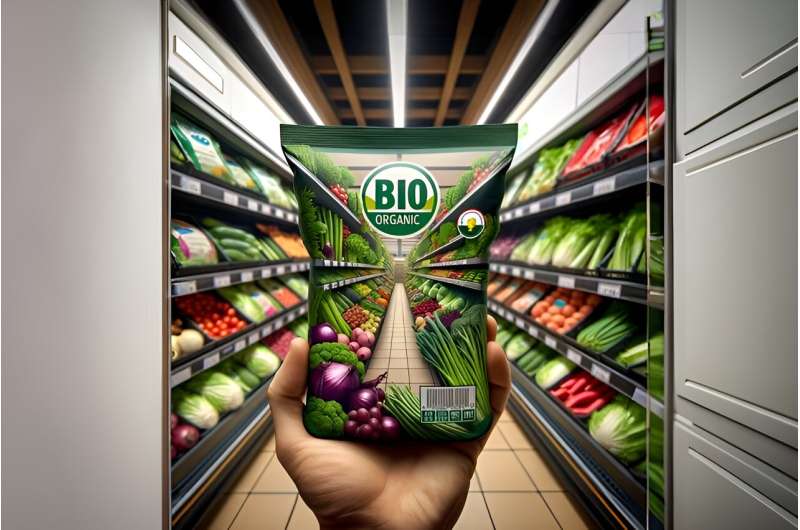This article has been reviewed according to Science X's editorial process and policies. Editors have highlighted the following attributes while ensuring the content's credibility:
fact-checked
proofread
New study shows ways forward for future EU food labeling

A study led by the Leibniz Centre for Agricultural Landscape Research (ZALF) and published in the journal Ecological Economics provides important insights into the future of food labeling in the EU. By analyzing expert opinions from the food industry, the study identifies a broad consensus on the need for new food labels to encourage farmers to provide more ecosystem services.
Three proposed label prototypes—a producer-driven ecosystem service label, a consumer-oriented information label and a new EU sustainability label—reflect the diversity of stakeholder perspectives and underline the importance of integrating all viewpoints for the success of the EU food labeling framework. In addition to different perspectives, the results also reflect national characteristics.
Three key perspectives: Three label ideas
The study presents three innovative approaches to food labeling that are relevant in the context of the EU strategy "Farm2Fork—From farm to fork." In the strategy, the EU aims to encourage consumers to pay more attention to sustainability criteria when making food purchasing decisions.
The "producer-driven ecosystem service label" focuses on the direct link between agricultural production and ecosystem services and follows the idea of producer associations that label products with additional environmental standards.
The "consumer-oriented information label" focuses on educating and informing consumers about the environmental impact of products. Accordingly, the second label is more prescriptive in nature and is similar to the idea of the "Nutri-Score." In this case, a five-level color and letter scale provides information about the nutritional value of a product.
The "EU sustainability label" aims to certify products within an EU-wide framework of sustainable food production, with a particular focus on the entire value chain. This label could complement existing voluntary labels, such as the EU organic label. These prototypes illustrate the potential for a sustainable design of the food sector that takes both ecological and social criteria into account.
"This study is a crucial step towards more sustainable food production and consumption in Europe. By bringing together different perspectives within the food industry, we show how food labeling can effectively contribute to the promotion of ecosystem services. Our work underlines the need to work together for a transparent and responsible food chain that benefits both our environment and future generations," says Christoph Schulze, lead author of the study and researcher at the Leibniz Center for Agricultural Landscape Research (ZALF).
More information: Christoph Schulze et al, Between farms and forks: Food industry perspectives on the future of EU food labelling, Ecological Economics (2023). DOI: 10.1016/j.ecolecon.2023.108066
Provided by Leibniz-Zentrum für Agrarlandschaftsforschung (ZALF) e.V.




















